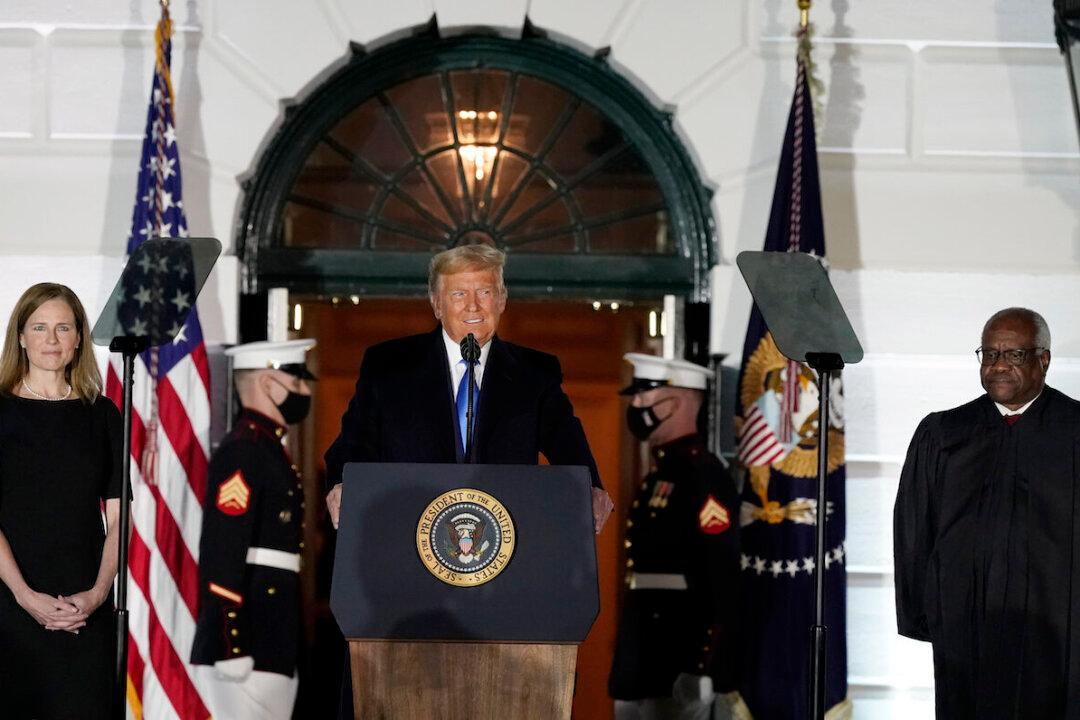Amy Coney Barrett vowed to remain independent from political pressure and policy preferences and to carry out her duty “without any fear or favor” during a speech shortly after being sworn-in the newest associate justice of the Supreme Court.
Barrett said that the confirmation process, while rigorous, made clear the fundamental difference between the judicial and legislative branches.




